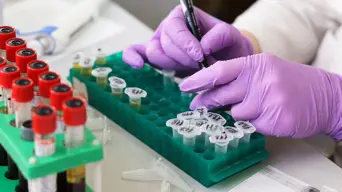Toxic chemicals in Gauteng's Klip River threaten health, wildlife & water supply - UJ study
These chemicals are linked to cancer, organ damage, and developmental problems.

Picture: Pixabay
702's Gugs Mhlungu spoke to lecturer in Chemical Science at the University of Johannesburg (UJ) Dr Mathapelo Seopela.
Listen to their conversation in the audio clip below.
A study by the University of Johannesburg (UJ) highlights alarming levels of harmful chemicals in Gauteng's Klip River, a critical water source for local communities and connected to the Vaal River.
The research showed high amounts of polycyclic aromatic hydrocarbons (PAHs) in the river's sediments.
"Long-term exposure to polycyclic aromatic hydrocarbons (PAHs) would then be associated with chronic health risks, which would include things like cancer, reproductive issues, developmental problems, etc, especially in vulnerable populations."
- Dr Mathapelo Seopela, University of Johannesburg
Most of these toxins come from industrial runoff, oil spills, and burning coal and waste that exceed safety limits, especially in the dry season when the water levels are lower, and the risk of exposure is higher.
"We should implement stricter regulations on industrial discharge, as well as sewage management along the Klip River but also we need to ensure that there are ongoing monitoring activities that are recurring in the area. We should also enforce further research on effective remediation techniques that are necessary to mitigate adverse effects that we've observed using our model organism..."
- Dr Mathapelo Seopela, University of Johannesburg
The study also found negative effects on fish, as zebrafish embryos exposed to polluted sediments exhibited deformities, delayed hatching, and higher mortality rates.
Seopela says this pollution poses risks to both wildlife and human health, as these toxins can accumulate in the food chain.
"One would think that by having contaminants in the water body, it would just be the aquatic organisms that are affected, but pollution of the Klip River affects nearby communities in several ways. It not only degrades the water quality, but also reduces the amount of water available for domestic purposes and in turn, that is being used for irrigation and livestock. Contaminated sediments can harm aquatic food sources which may impact the nutrition and economic activities in the area."
- Dr Mathapelo Seopela, University of Johannesburg
Experts warn that rapid urban development and poor waste management are creating a public health emergency, jeopardising water quality, livestock health, and biodiversity.
Researchers are advocating for stricter regulations and cleanup efforts to combat these environmental and health issues.
Scroll up to listen to the full conversation